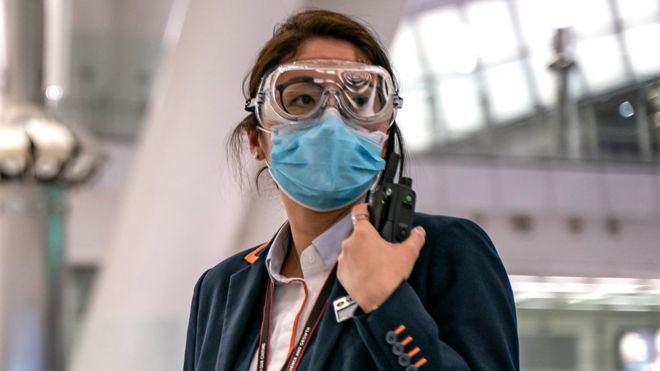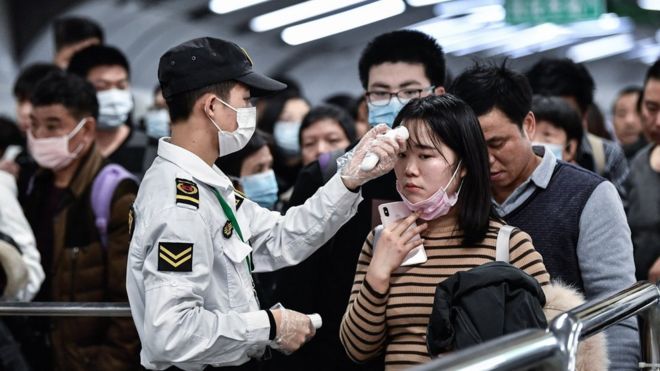... as virus spreads to every Chinese region
 GETTY IMAGES
GETTY IMAGES
The death toll of the coronavirus has risen to 170 and with a confirmed case in Tibet, the virus has now spread to every region in mainland China.
Chinese health authorities have said there were 7,711 confirmed cases in the country as of 29 January.
Infections have also spread to at least 16 other countries.
The World Health Organization (WHO) will meet on Thursday to discuss whether the virus constitutes a global health emergency.
"In the last few days the progress of the virus, especially in some countries, especially human-to-human transmission, worries us," WHO Director-General Tedros Adhanom Ghebreyesus said on Wednesday, pointing to Germany, Vietnam and Japan.
"Although the numbers outside China are still relatively small, they hold the potential for a much larger outbreak."
- Scientists race to develop a coronavirus vaccine
- China coronavirus: A visual guide to the outbreak
- Wuhan diary: Living alone in a locked-down city
What is the coronavirus?
The virus is thought to have emerged from illegally traded wildlife at a seafood market in Wuhan, the capital of Hubei province and where most cases and deaths have been reported.
Though there have been a handful of cases where it is thought to have spread between people - most of the confirmed cases are people who are from Wuhan or had close contact with someone who had been there.
While there is no specific cure or vaccine for the virus, many people who contract it have only mild symptoms and do recover from it.
It can though cause severe acute respiratory infection and lead to death.
Like the similar Sars and influenza viruses, the new coronavirus is thought to be particularly a risk for elderly and people with pre-existing illnesses.

The city has effectively been sealed off and China has put numerous transport restrictions in place to curb the spread of the virus.
People who have been in Hubei Province are also being told by their employers to work from home until it is considered safe for them to return.
The Chinese Football Association has announced the postponement of all games in the 2020 season.
Several international airlines have stopped or scaled back their routes to China and companies like Google, Starbucks and Tesla have closed their stores or stopped operations.
What are other countries doing?
Voluntary evacuations of hundreds of foreign nationals from Wuhan are underway to help people who want to leave the closed-off city and return to their countries.
Two flights to Japan have already landed at Tokyo's Haneda airport and the passengers are being screened at medical institutions. So far, three have tested positive for the virus, Japanese media report.
 AFP
AFP
Around 200 US citizens have also been flown out of Wuhan and are being screened in the US.
A group of Singaporean citizens has also already been flown out while people from Wuhan stranded in Singapore due to flight cancellations have been flown back to China.
Flights to take British and South Korean citizens out of Wuhan have both been delayed after relevant permissions from Chinese authorities did not come through.
According to the UK government, the arriving passengers are to be put in "supported isolation" for 14 days with "all necessary medical attention".
Australia plans to quarantine its evacuees on Christmas Island, 2,000km (1,200 miles) from the mainland.
Two aircraft are due to fly EU citizens home with 250 French nationals leaving on the first flight.
Canada, the Philippines and Malaysia have also announced plans to fly their citizens out of Wuhan.
A growing number of countries are advising their citizens to avoid all non-essential travel to China.






